Election 2017: The south-east Scotland seat where every vote will count
- Published
The Berwickshire, Roxburgh and Selkirk Westminster seat is the most marginal in Scotland
There will be few places more practised in the art of voting than that of south-east Scotland.
Voters recently elected a new council in the Borders and, on 8 June, much of the region will choose not only their new MP but their new MSP also.
And some might be called out again if - as expected - councillor Michelle Ballantyne leaves the local authority having taken a place at Holyrood.
When it comes to exercising their democratic right, they must be among the most expert in the country.
Many eyes will be on Berwickshire, Roxburgh and Selkirk when the General Election comes around.
The reason? It was the closest battle in Scotland two years ago with just 328 votes securing victory for the SNP's Calum Kerr over closest rival John Lamont for the Conservatives.
A collapse in the Lib Dem vote saw former MP Michael Moore finish third with Kenryck Lloyd-Jones a distant fourth for Labour.
The two main protagonists of that tussle - which went to a recount - will go toe-to-toe once again.
Caroline Burgess will try to revive Lib Dem fortunes while Ian Davidson hopes to boost Labour's vote.
Unlike two years ago, there are no Green, UKIP or independent candidates - which makes it a straight four-way fight.
SNP candidate
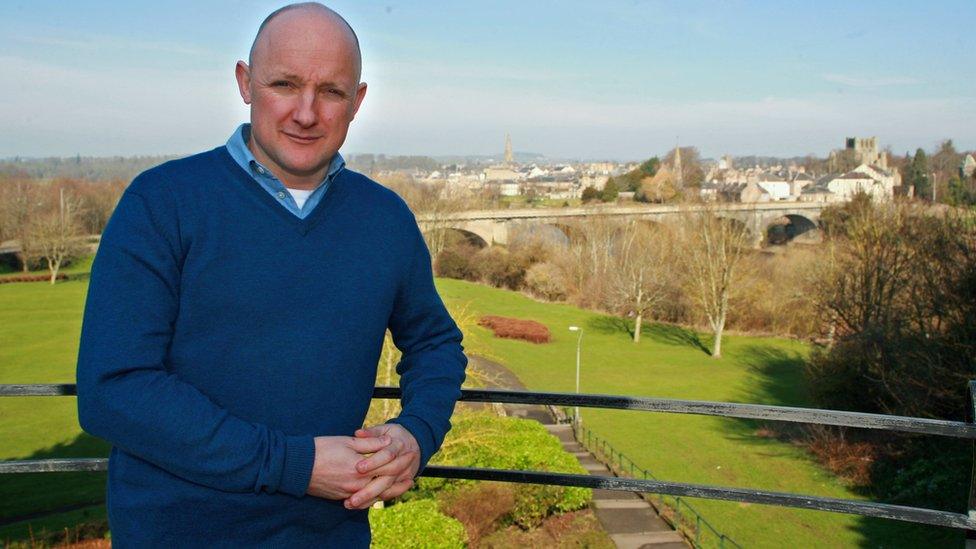
Calum Kerr won the seat in 2015 after a recount
Conservative candidate
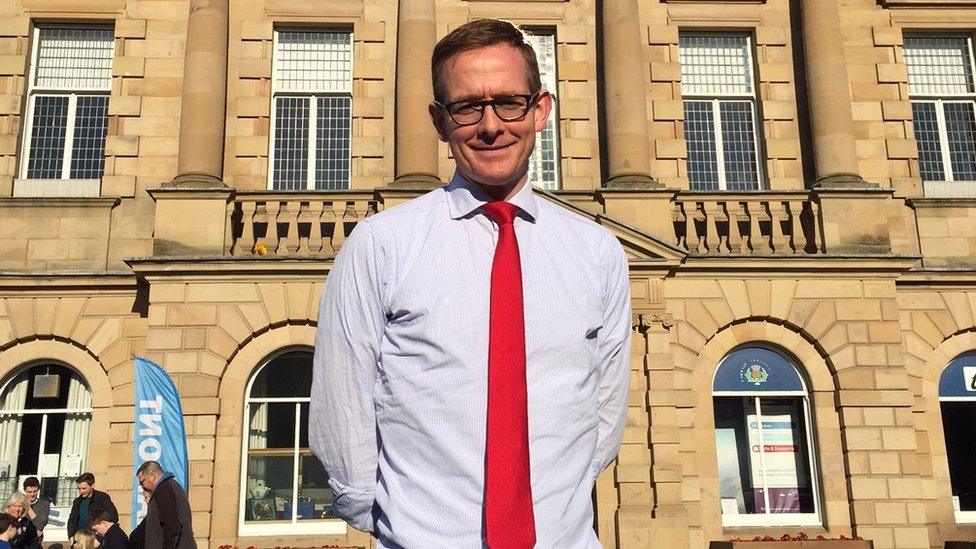
John Lamont stepped down as an MSP to fight for the seat at Westminster
Mr Lamont, who gave up his seat in the Scottish Parliament to enter the Westminster battle, insists it will be a two-way tussle again.
He said: "Just like in 2015, this is shaping up to be a close contest between me and the SNP, which is why I need the support of people who don't want a second independence referendum.
"A vote for anyone else risks letting the SNP win in the Borders."
Mr Kerr described that as a "negative, single-issue campaign".
He explained: "The Borders hasn't sent a Tory MP to Westminster in over 50 years, because when it comes to policy, people know that Tory values do not match with the values of the Borders.
"Clearly the only way to prevent turning the clock back is to vote for me on 8 June."
Understandably, Ms Burgess dismissed any suggestion this was a straight SNP-Conservative duel saying anyone who knew the area would "laugh off" that idea.
"The Borders was a Liberal seat for the 50 years prior to 2015," she said.
"The fact is the people I have met are telling me they don't want the hard Brexit of the Conservatives or the second referendum and isolation of the SNP."
Liberal Democrat candidate
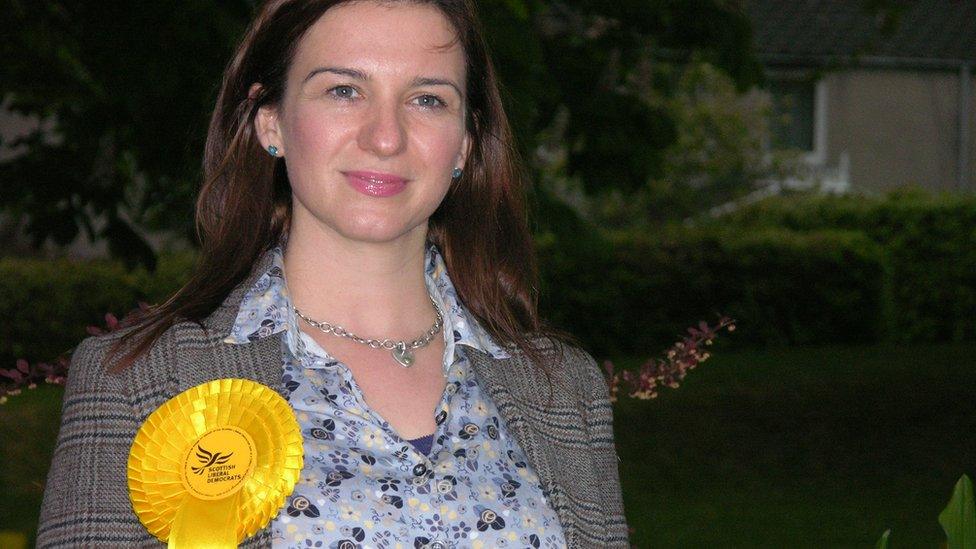
Caroline Burgess said her party had a proud history in the region
Labour candidate
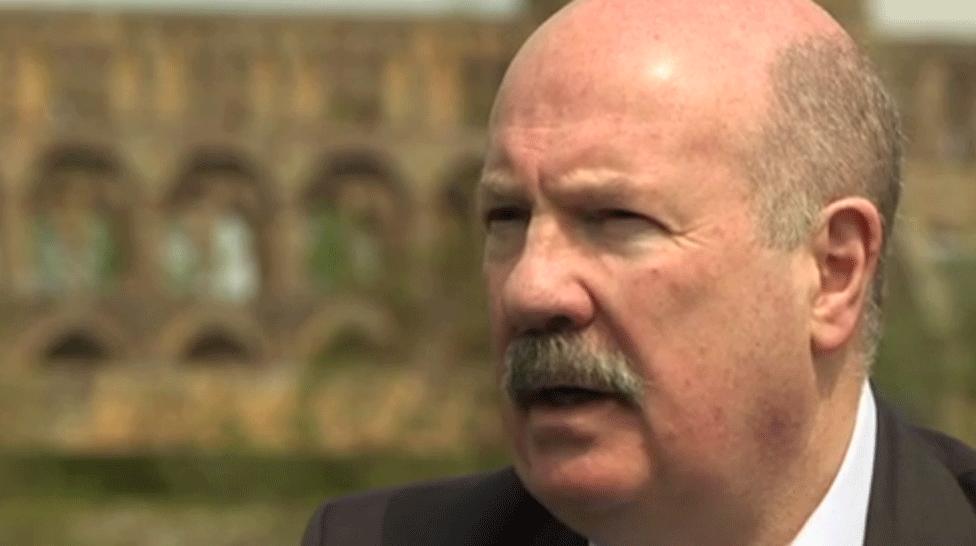
The Labour Party candidate Ian Davidson criticised the negative campaigns of his rivals
Mr Davidson said there was a danger of people voting simply to keep a particular party out.
"It is presently dominated by two very negative campaigns: 'Stop the SNP - vote Conservative' and 'Stop the Tories - vote SNP'," he said.
"The negativity of others is starting to alienate many."
Both Mr Kerr and Ms Burgess highlighted Brexit as the key issue facing the constituency.
The SNP candidate said the challenges facing agriculture, textiles and food and drink meant the region was "on the frontline" of the issue.
His Lib Dem counterpart also flagged up a second independence referendum as a further concern along with the need to revive Borders towns.
For Mr Lamont, however, the "number one issue" is the "continued threat" of another vote on Scottish independence with people keen to avoid a return to "division and uncertainty".
Labour's contender preferred to focus on the outflow of population - especially young people - to be replaced by "Edinburgh commuters and prosperous retirees" as his key concern.
Each one, naturally, reckons they offer the best option for voters on 8 June.

What was the 2015 result?
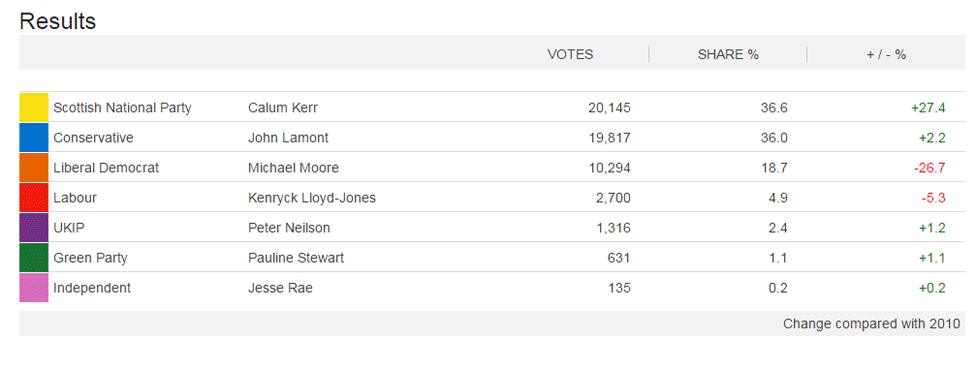

Mr Davidson said he was offering the only positive campaign focusing on class issues with a £10 minimum wage promise.
He also called for a dedicated South of Scotland Development Agency to deliver "better jobs in a better Borders".
Ms Burgess said that her "vibrant new approach" as "not a career politician but a passionate and honest campaigner" might chime with voters.
"People are tired of hearing endless commitments and false promises and want a real person to represent their views in Westminster," she said.
'Work tirelessly'
And the two men who were separated by just a few hundred votes?
Mr Lamont said he was a "committed local campaigner" who, as MSP, had "always put the Borders first".
"I've always put local people before party politics," he said. "I have a track record of standing up for the area and will continue to do so if elected as your MP."
While Mr Kerr said that as the local, established MP he wanted to continue to "work tirelessly" on behalf of constituents.
"Now, more than ever, we need a strong voice in Westminster that will always speak up for the Borders," he said.
It will be up to the now-getting-pretty-expert voters in the region to decide which message they prefer.
If recent history is anything to go by, that verdict could be in the balance until the very last papers have been counted.